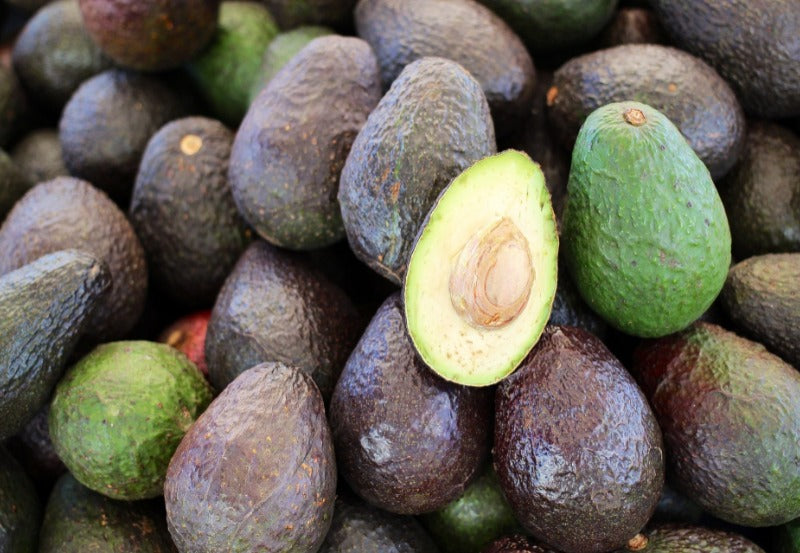Whether it’s in guac or on toast, avocado is a popular fruit in many homes. There are endless uses for it in practically every kind of cuisine. But when it comes to animals, it’s a whole different story. Before you give your reptile even a little bit of this fruit, find out: can bearded dragons eat avocado?
Can Bearded Dragons Eat Avocado? Absolutely Not
As any good reptile owner should, you probably spend a decent amount of time researching what bearded dragons can eat. You probably also wonder...what can bearded dragons not eat? You guessed it: avocado is at the top of that off-limit list.
Avocados contain persin, a fungicidal (fungi-destroying) toxin that is poisonous on some level to all animals, especially birds. Persin is primarily found in the skin and seeds of avocado, and just enough of it leaks into the fruit to make it poisonous to animals but harmless to humans. In animals, persin can cause vomiting, diarrhea, respiratory failure, and death.
That’s the main reason avocado is completely off the menu for bearded dragons: although some bearded dragons have recovered from consuming avocado, they have been known to die within hours after eating it, and it’s far better to be safe than sorry when your pet’s life is at stake.

Why Else Is Avocado Bad for Your Bearded Dragon?
Even if avocado did not contain persin, it would still be a very bad food for bearded dragons to eat. Here’s why.
Too much fat. Avocados, while healthy for people, have a lot of fat. We’re talking 77% of their total calorie count. Yep, you read that right: more than 75% of an avocado’s calories comes from fat. Unsurprisingly, avocado is one of the fattiest fruits and veggies in existence.
Bearded dragons in captivity can easily become obese if they have too many fruits or fatty foods. Obesity can lead to serious health problems, like tooth and gum decay, liver disease, and heart failure. So the fat in avocados definitely makes this food a very unwise and unnecessary choice for your bearded dragon’s diet.
Lots of oxalic acid. Avocados are also high in oxalic acid (you may have also heard it called oxalates). Essentially, oxalic acid is bad for bearded dragons because it binds with calcium and prevents absorption into the bloodstream. Because calcium is a key nutrient for bearded dragons, too much oxalic acid can cause serious damage to their skeletal system over time. This condition is called metabolic bone disease (MBD).
The following symptoms are signs of metabolic bone disease:
- Twitching or shaking limbs
- Lethargy and weakness
- Bone fractures
- Limb paralysis
Chances are, if you keep your dragon on a balanced diet and in a properly lit terrarium, your bearded dragon will not develop MBD. However, it’s something every Dragon Keeper should be aware of, and if you ever notice any of the symptoms, contact your vet immediately.
What to Do If Your Bearded Dragon Eats Avocado
Of course, it’s best if your dragon never comes in contact with an avocado, but accidents do happen. If your bearded dragon manages to eat avocado, whether a pet sitter didn’t know it was harmful or it ended up in your beardie’s salad by mistake, the important thing is to act quickly and remain calm. Here are some things to do if your bearded dragon eats avocado:
- Call your vet immediately.
- Look out for any abnormal behavior in your beardie, especially signs of respiratory distress.
- Try a warm bath to encourage your bearded dragon to go to the bathroom and get the avocado out of his system.
- Using a syringe, give lots of water to your dragon to wash out the poison as quickly as possible.
Other Things Bearded Dragons Can Eat
So avocado slices are off limits. What can you feed your bearded dragon instead? There are plenty of fruits and vegetables that will boost your dragon’s health without putting them at risk. Try bell peppers, apples, carrots, strawberries, or grapes—they are all delicious, nutritious, and most importantly, not toxic for your bearded dragon!
If you have questions or feedback, we'd love to hear from you! Please email us at team@dragonsdiet.com








